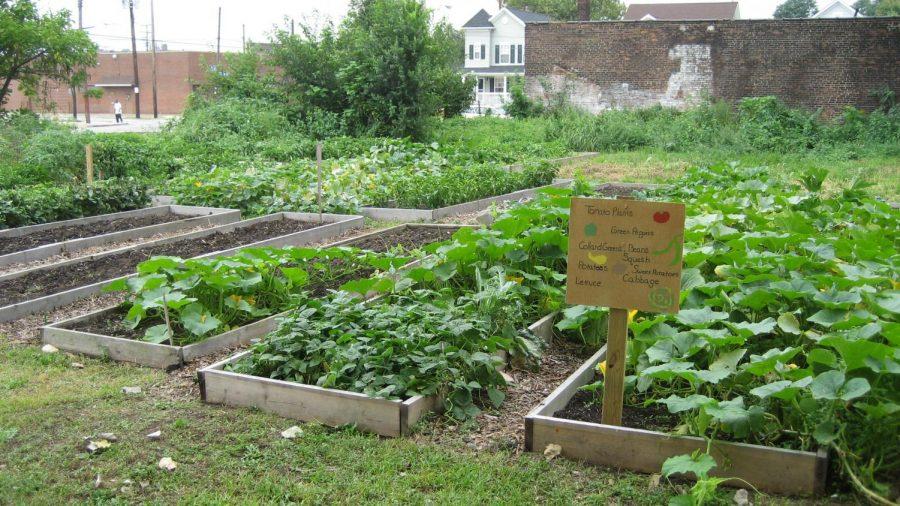Starr: Want to Help the Environment? Grow and Shop Local.
October 26, 2019
It is understandable to feel fatigued by the constant reporting on the challenges of climate change. Are rising seas, dwindling bee populations and bleak UN reports on the state of the global environment bringing you down? If so, it might be helpful to use the negative feelings you’re housing as activators for simple changes to your daily routine. Take, for example, the grocery list you jotted down earlier. While a small step, it is an opportunity to assess a piece of your personal environmental impact, and Salt Lake City is here to help you access food that is grown locally, organically and sustainably.
In 2017, Mayor Biskupski and the Salt Lake City Council determined that the urban food system could become more environmentally conscious and healthier for the community. After obtaining recommendations from the Utah Sustainability Department, SLC partnered with a non-profit that enriches the city with the Saturday farmer’s market at Pioneer Park and the winter market at Rio Grande. A grant program was then created to boost locally-grown, organic agriculture which places the health of the soil, water and eaters at the forefront of the growing process.
According to Envision Utah, a non-profit focused on helping manage the state’s growth, only 3% of the fruits and 2% of the vegetables residents eat are grown in Utah. This is a problem, especially as we sit upon plenty of land that could nurture crops. Even within the urban setting of Salt Lake City, there is great capacity for local food production amidst the streets and buildings. The Local Food Micro-grant Program will help drive our local food consumption rates. By encouraging responsible agriculture in the city, residents will have better access to produce grown from their own community.
Purchasing food directly from the area that you live in is an environmental decision. Incorporating local produce into your grocery shopping helps reduce “food miles.” The fruits and vegetables obtained from another state or country use multiple means of transportation to get to our grocery baskets and onto our plates. Traveling on land, by air or sea — some products may use all of them — is a carbon-intensive voyage. Eating is an essential need, and the miles in this constant process can add up and enhance climate change. While transportation is one of the smaller contributions to total carbon emissions from the food system, it’s still a significant component that easily can be avoided by shopping local.
Not only does the Local Food Micro-grant Program encourage savings related to food miles, but it promotes sustainable growing practices which also better the environment. The funds are awarded every year to different farmers and organizations to be used for “technology, education, tools and equipment to grow more organic local produce.” Organic seed, solar panels and drip irrigation systems are only the beginning of the measures supported through this sustainability program.
Beyond food miles , industrial agriculture is characterized by methods that extend the carbon footprint. Food-related greenhouse gas emissions are “dominated by the production phase,” and the United States Environmental Protection Agency has identified “soil management” as a main emitter of CO2. Salt Lake City’s grant program provides assistance to urban growers who execute production sustainably. Because of this, emissions can be better avoided. The industrial methods of pesticides, monoculture and heavy machinery are shadowed by hoop houses and small-scale plots in suburban neighborhood backyards.
The city’s adoption of a local, organic food culture steers us away from an environmentally degrading system. It also supports the local economy, keeping dollars in the place they are spent. If Utahns would spend 10% more locally, the state’s economy would benefit by up to $1.3 billion. The efforts of Mayor Biskupski and the City Council should be replicated by local governments across the state if this type of economic magnitude and ecological benefits are desired. Micro-grants reassure growers and help supply product for consumers, and this cycle promotes the capture of sales and property tax dollars by the city.
While the fight for systemic change against environmental harm is a long and seemingly out-of-reach aim, individual behavioral adjustments can be made. These actions might increase your peace of mind while contributing to the larger battle for sustainability. The Local Food Micro-grant Program gives essential resources to farmers in the community, promoting a more localized and sustainable food system which benefits all of us environmentally and economically. Purchasing products grown around the corner is one small adjustment to make for the better, especially if one isn’t capable of giving up meat but still cares about the future.








